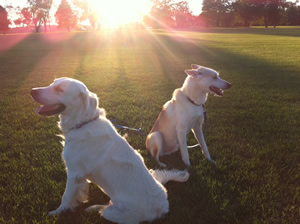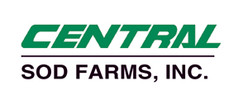Lawns with Dogs
If you have a dog, or plan to get a dog at some point in your life, you may have wondered occasionally what effects canines can have on the lawn you work to maintain. You may even have experienced some of the more negative side effects dog urine already! That’s right - repeated or concentrated urination from pets can cause ugly discoloration and death in a lawn. Many factors go into the severity of discoloration, such as yard size, your dog’s size and urination habits, and the steps you take to prevent pet damage.
Is Fido the Culprit?
If you think there isn’t a very strong correlation between the spots your dog uses to urinate and the brown patches in your lawn, then perhaps it isn’t the puppy’s problem. Any number of conditions that affect grass could be the true culprit; we have a few other articles on infections like Brown Patch that could help you identify your problem. If you have reason to believe it may be your dog, take the time to watch where your dog relieves itself throughout the day - if the patches in your yard correspond to your dog’s choices, then you may want to read on.

What does damage from urination look like?
Urine damage commonly appears as yellowish discoloration in patches throughout the yard, which sometimes develop into dead brown spots after repeated urination.
How can it be prevented?
There are many ways to reduce the effects of dog urine on your lawn. First, you can increase the dog’s water intake by mixing its food with some water, and always have water readily available. This pre-dilutes the urine so that the nitrogen in the urine is less concentrated. It may also help to water over the spots your dog uses to urinate.
Another method would be to control where your dog urinates by either training or walking with the dog. We understand this may be difficult and a bit of a lifestyle change if you’re used to letting the dog out on its own, but it is certainly the best method of preventing concentrated urine damage to your lawn.
Beyond controlling factors specific to your dog, you should always be taking good care of your lawn itself! The healthier the grass is, the less susceptible it will be to pet damage. Give your lawn the resistance it needs by watering regularly and fertilizing when appropriate.
